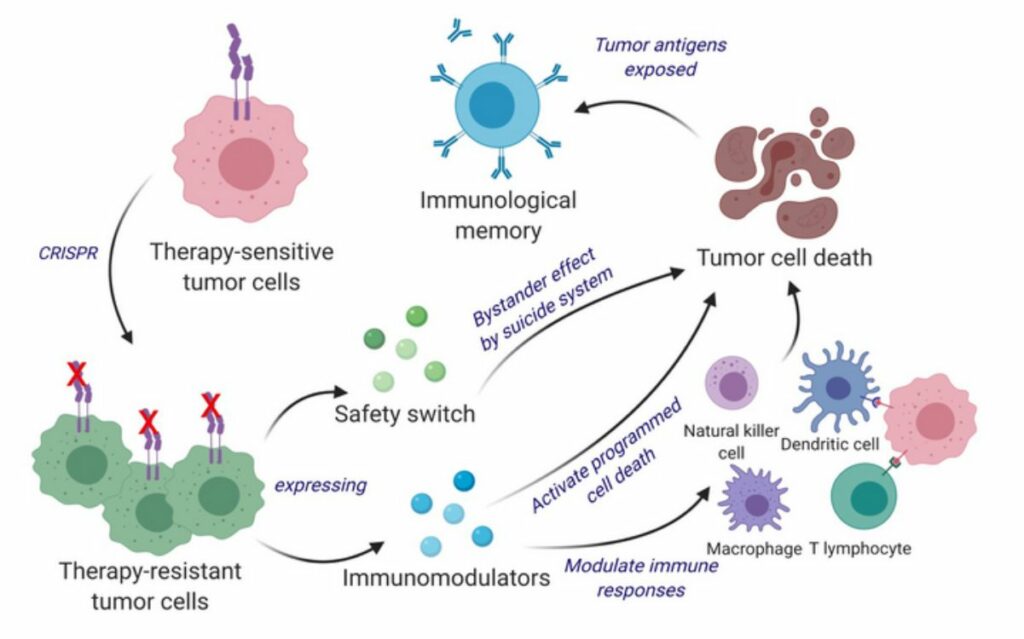Scientists are developing a novel technique for switching cancer cells into strong anti-cancer medicines.
Khalid Shah, MS, PhD and colleagues at Brigham and Women’s Hospital have discovered a novel cell therapy strategy to eradicate existing tumors and promote long-term immunity, by training the immune system to avoid cancer recurrence.
The team’s dual-action, cancer-killing vaccine showed encouraging results in an advanced animal model of glioblastoma, a deadly brain disease. The study’s results were published in the journal Science Translational Medicine.
As corresponding author Khalid Shah explains, “Our team has pursued a simple idea: to take cancer cells and transform them into cancer killers and vaccines. Using gene engineering, we are repurposing cancer cells to develop a therapeutic that kills tumor cells and stimulates the immune system to both destroy primary tumors and prevent cancer.”
Many laboratories are working on developing cancer vaccines, but Shah and his colleagues have adopted a different strategy.

The team repurposes live tumor cells since they have unique property, as opposed to employing inactivated tumor cells. Living tumor cells will travel long distances throughout the brain to reunite with their partner tumor cells, much like homing pigeons returning to their nest.
Using the gene editing technology CRISPR-Cas9, Shah’s team generated live tumor cells and repurposed them to release a tumor cell-killing chemical to take advantage of this particular trait.
Additionally, in order to prime the immune system for a sustained anti-tumor response, the altered tumor cells were created to produce characteristics that would make them simple for the immune system to recognize, tag, and recall.
The researchers conducted experiments using their modified CRISPR-enhanced therapeutic tumor cells (ThTC) on various strains of mice, including a strain that had bone marrow, liver, and thymus cells from humans, which simulated the human immune system.
Additionally, Shah’s team integrated a two-layered safety switch inside the cancer cell. This switch, when engaged, destroys any ThTCs that may be present in the cell. In these models, this dual-action cell treatment was shown to be safe, adaptable, and effective, offering a path forward for its eventual use in therapy.
Though further research and development are necessary, Shah’s team opted for this approach and employed human cells to make it easier to apply their results in clinical settings.
“Our goal is to take an innovative but translatable approach so that we can develop a therapeutic, cancer-killing vaccine that ultimately will have a lasting impact in medicine,” the author adds.
Shah and his colleagues say that this therapy can be used to treat a wider range of solid tumors and that more research is needed to find out how it can be used.
Source: 10.1126/scitranslmed.abo4778
Image Credit: Shutterstock
